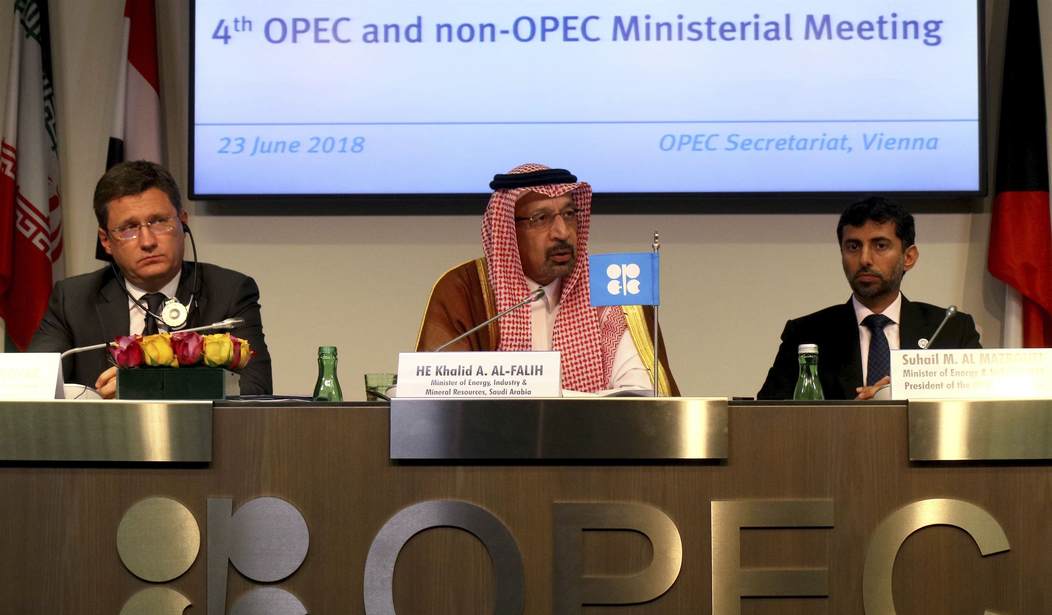To hear some in the media tell it, the Trump administration’s decision to freeze fuel-economy standards for cars and trucks is a massive detour from common sense.
“Highly problematic,” a Forbes contributor puts it. “Hard to justify on economic, social, environmental, or legal grounds.” CNN Money says “weaker fuel economy would mean a world of chaos.” And The New York Times editorial board calls the administration’s move “a reckless scheme” that’s “based on bad science, bad math, and bad faith.”
Just the opposite, actually. It was the Obama administration’s move to increase CAFE (Corporate Average Fuel Economy) standards that was steering us in the wrong direction. This is simply a case of the current administration grabbing the wheel and doing a little much-needed course correction.
When you consider that CAFE was created in the mid-1970s in response to the OPEC oil crisis, it may seem surprising that we’re dealing with it so many years later. But as Ronald Reagan once said, “A government bureau is the nearest thing to eternal life we'll ever see on this earth,” and the same certainly holds true for a government program.
So CAFE standards have not only not gone away, they’ve done what so many other regulations do: become bigger. And in the process, they’ve raised prices and reduced consumer choice.
The Bureau of Labor Statistics measured the quality-adjusted average price of new vehicles and found that from the mid-1990s until 2008, when CAFE standards remained mostly steady, the average vehicle price fell steadily. Since the Obama-era standards took effect, as researchers Salim Furth and David Kreuter pointed out in a 2016 paper, average new car prices have risen to $6,200 above the trend line.
Recommended
Can we say categorically that the increase is due solely to higher CAFE standards? No, but the increase is consistent with what economists predicted would happen when the new standards took effect. And when we look at how vehicle prices had been decreasing before the new standards? Seems like quite a coincidence.
It doesn’t take much to affect prices. According to Mark Jacobsen of the University of California-San Diego, the total consumer cost of just a 1 mpg increase in CAFE standards after five years is $20.87 billion per year.
Who bears the cost? Domestic automakers and consumers, of course. But not all pay equally. In fact, the poor are hardest hit by higher CAFE standards. “After 10 years’ adjustment,” Loris says, “the burden of the regulations will fall most heavily on households with incomes below $25,000.”
Worse, at least from a government standpoint, is that Americans just won’t buy the lightweight vehicles they’re “supposed to.” They want cars that are faster and more powerful. The government can demand vehicles that get 54.5 miles per gallon all it wants, but consumers want ones with a decent amount of horsepower, not tiny gas-sippers that can’t protect them sufficiently in an accident, or enable them to haul the people and the things they need to move around on a daily basis.
Not everyone loses under higher CAFE standards, though. In fact, so-called “green” companies make out rather handsomely.
As economist Nicolas Loris points out, if you’re an electric-vehicle maker, and you collect credits from other autos, or from policies that reward zero-emissions credits, it makes your balance sheet look pretty good. There’s a huge transfer of wealth from pickup drivers and everyday Americans to politically connected companies and wealthy individuals who don’t need a $7,500 tax credit to buy a vehicle. But they get one anyway.
“These rules aren’t fair,” Mary Kate Hopkins and Martin Rodriguez of Americans for Prosperity write in The Hill. “A single mom in Ohio or a day laborer in Texas should not be forced to pay more for their cars just to subsidize a Californian’s Tesla.”
And yet they have been. The Obama administration clearly took a wrong turn on this issue. Freezing the standards is a good first step, but if lawmakers really want to help, they should scrap the standards altogether. It’s time to put consumers back in the driver’s seat.
























Join the conversation as a VIP Member